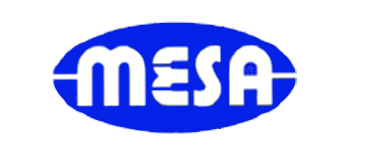

Specialty Gas
The MESA Specialty Gas Desktop Software has arrived.
The MESA Specialty Gas Desktop Software will provide you with consistent, accurate and dependable calculations and conversions of your most common gas conversion requirements. For a limited time, MESA Specialty Gas will be offering 9 of the most popular modules for FREE. The MESA Specialty Gas Desktop software will help you save time and reduce potential errors by accurately calculating many of your specialty gas and industrial gas conversions.
Please feel free to share this offer with others in the specialty gas or industrial gas field you know who could benefit as well.
About the MESA Specialty Gas Software
The MESA Specialty Gas Software code in the MESA "free customer version" includes the following most commonly used modules :
-
Gas Conversion
-
Physical Properties
-
Pricing Formulas
-
Gaseous Storage
-
Liquid Storage
-
Gas Laws
-
Unit Conversions
-
Definitions
-
Purity Equivalents
These specialty gas and industrial gas tools are the most popular modules on the MESA Specialty Gas Desktop Software. Over 20 gas conversion tool modules are available on the software and can be unlocked for a small upgrade fee.
Specialty Gases defined
Specialty gases are high purity gaseous chemicals used as analytical lab gases as well as intermediates in production processes. They are vital to a myriad of industries. They are used in the medical, petrochemical, environmental, pharmaceutical, semiconductor, and chemical fields, just to name a few. They are utilized in universities, manufacturing plants, hospitals, refineries, pharmaceutical companies, and nuclear power plants. The list of possible applications for specialty gases is endless.
Specialty gases may consist of a single gas or be a mixture of many individual components blended together in one cylinder. They may also be one of several grades of purity: high purity, ultra high purity, and research grade. The purity of the gas is commonly confirmed after the cylinder has been filled. Because of the precision required to produce these specialty gases, they tend to be much more expensive than industrial gases.
Specialty Gas vs. Industrial Gas
Industrial Gas providers use low purity industrial grade gases that contain impurities. High purity levels are not critical for industrial gas applications. For this reason, industrial gases can not be used as a substitute for specialty gas applications, where high purity levels are required. In addition, using industrial gas for specialty gas applications could cause instrument or process interferences and could also damage expensive analytical or process equipment.
Specialty Gas cylinder options
There are several options when it comes to specialty gas cylinders.
First there is a choice between refillable and disposable specialty gas cylinders. Refillable gas cylinders are the most commonly used. They are heavier and hold more content. They are meant to be stationed at one location where the end user returns periodically to refill or test his instruments. Refillable specialty gas cylinders are constructed of either steel or aluminum. The steel cylinder, although heavier, is lower cost while the aluminum cylinder is lighter, but more expensive (a lighter cylinder, however, may translate to lower shipping costs). Aluminum cylinders are typically the preferred vessel for specialty gases because of the clean and smooth interior surface. Steel cylinders tend to have a rough interior surface which can impact the quality of the specialty gas especially at low ppm concentrations. An experienced specialty gas supplier can help you decide which refillable cylinder type is best for the particular specialty gas and application.
Disposable calibration gas cylinders are a smaller, lighter option that holds less gas while being portable and easily discarded once empty. Just like its refillable counterpart, disposable cylinders come in high and low pressure options, and are made of either steel or aluminum. Disposable cylinders are desirable for fieldwork, tight spaces and short application cycles and can be disposed of in any trash receptacle.
Specialty Gas handling equipment
Specialty gas handling equipment is an integral piece of the calibration gas sampling process. Just as the specialty gas manufacturer provides high purity gases, they must also use specific regulators, valves and fittings to maintain the integrity of the final specialty gas standard. Using the wrong materials can introduce contaminants into the sample, rendering the calibration unreliable. Using industrial gas regulators can also lead to minor component absorption in the sampling process. A close relationship with a competent specialty gas supplier can help end users make sure they are selecting the appropriate specialty gas handling equipment for their application. A good specialty gas supplier will partner with the end user to better understand the type of application and the desired end results. The proper selection up front saves end-users time and money, while obtaining consistent, accurate results.
Who do you buy from? Why a Specialty Gas company vs. a large industrial gas provider?
Many of the original specialty gas manufacturers have been purchased by large industrial gas companies over the years. Large customers demanded this in order to reduce costs through vendor consolidation. However, end users quickly learned that industrial gas companies tend to focus on one thing volume. This focus on volume has led to a lack of time and attention for their specialty gas customers. Focused specialty gas providers can better tend to the precise job of manufacturing Specialty Gases as well as maintaining a close relationship with their clientele. This focus can quickly become critical when you run into problems with a specialty gas application. Qualified specialty gas suppliers can be a useful resource for trouble shooting applications. Although they may be harder to find, a quality specialty gas supplier can be a valuable partner for technical end users.
